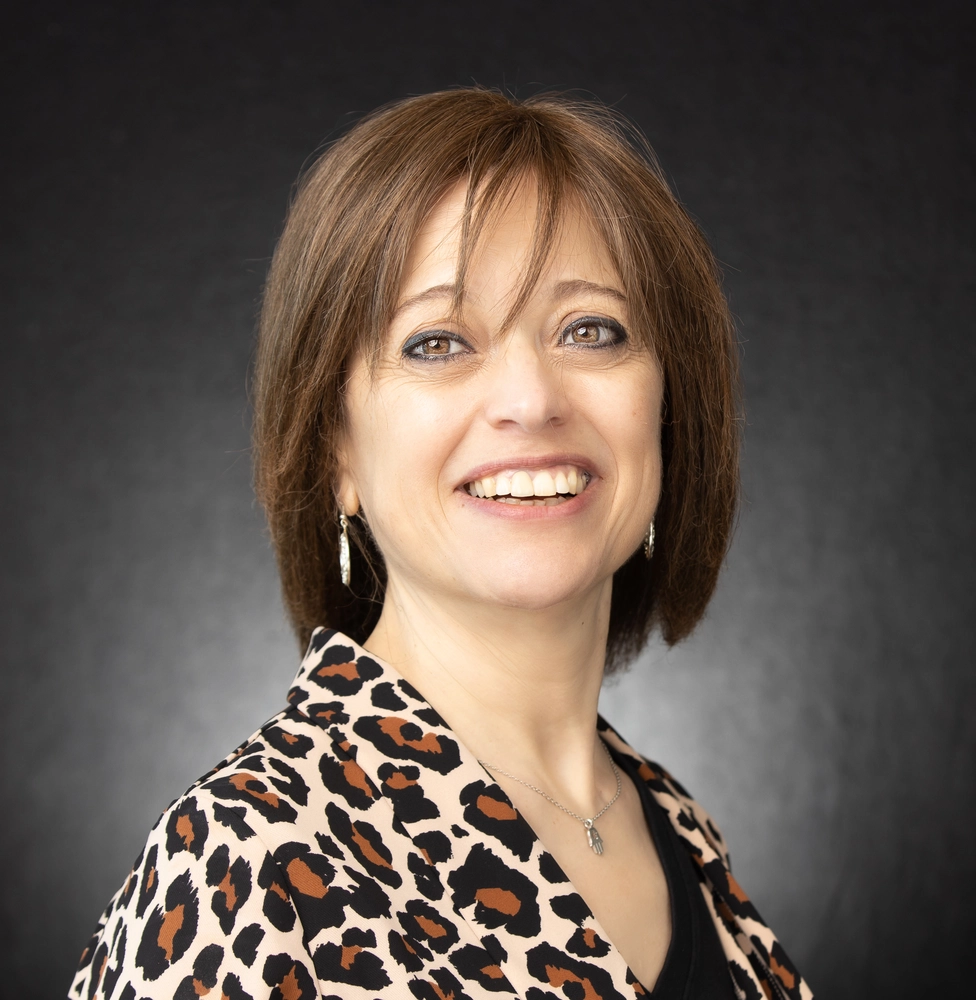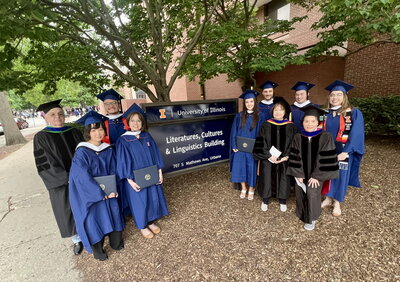
Interpreters play a crucial role in ensuring access to justice and healthcare for all, but there often aren’t enough professionals to fill that need.
Hebba Abulsaad (MA ’23, translation and interpreting studies) saw that gap and took it upon herself to help bridge it—all while working to complete her master’s degree on time.
Describe your work and why it’s important.
I do Arabic < > English interpretation and translation, in addition to managing my own small company. I am a certified judiciary interpreter and a certified health care interpreter.
My work as a certified Arabic court/medical interpreter is crucial in facilitating communication between individuals who speak different languages in legal and medical settings.
As a court interpreter, I work during trials, hearings, depositions, and other legal proceedings. My responsibility is to accurately convey spoken statements and evidence between parties who do not share a common language. I must maintain impartiality and ensure the confidentiality of the information that I interpret.
As a medical interpreter, I assist in healthcare settings such as hospitals, clinics, and doctor's offices. My role is to help patients and healthcare providers communicate effectively, ensuring that medical history, symptoms, diagnoses, and treatment options are accurately conveyed. I also need to be sensitive to cultural nuances and maintain the patient's privacy and confidentiality.
What made you want to go into this field?
There are a variety of reasons, but overall, my motivations were deeply personal. I grew up in a multilingual environment, which gave me a natural inclination toward interpretation and translation. Outside of that, I feel that bridging the gap between languages is rewarding and empowering. I have a deep fascination with different languages and cultures, and I have always had a strong desire to help others and promote cross-cultural understanding.
How did you juggle your interpreting work and your studies?
Communication was a key factor for me. From the beginning, I made sure to communicate with my employers and professors about my commitments and discuss the possibility of a flexible schedule as needed. When it was time for the presentation of my capstone, for example, I was still covering a long court proceeding that had gone over its allotted time. I had to communicate that to the court, and they kindly stopped the proceedings until I finished with my presentation. Finding the right balance between work and studies took some time and experimentation, and I had to be patient with myself and be open to adjusting as needed.
How have your studies within the Program in Translation & Interpreting Studies prepared you for the work you’re doing?
In addition to adding to my knowledge, it helped me embrace new technology, which significantly enhanced my productivity and accuracy as a translator and interpreter. Through assignments, practice sessions, and evaluations, the program offered constructive feedback that helped me identify areas of improvement and refine my skills. Being part of the program provided opportunities for networking with fellow students, professors, and professionals in the field. The program also significantly benefited me by enhancing my language proficiency, cultural competence, specialized knowledge, and professional skills, as well as providing ongoing support for continuous improvement in my career.

What were some of the highlights of your experience?
The online format of the program was hugely important for me as a working professional. It made it easier for me to enhance my skills and qualifications without interrupting my career. Another highlight was the strong sense of community and support among my peers and faculty members. Collaborating with like-minded individuals from diverse backgrounds not only enhanced my learning, but also helped me develop invaluable connections. And as an online student, graduation was a priceless experience. I had been remotely interacting with everyone for two years, so seeing, meeting, and talking to everyone in person was incredible.
What’s next for you and your career?
There are several paths I am looking at. One is covering international conferences, meetings, and events that often involve interpreting for diplomats, business professionals, and government officials. Since I now have a strong background in translation and technology, I am hopeful that could lead to work in localization, adapting software websites and content. I am also looking at the field of subtitles, dubbing scripts for films, TV shows, and other visual content. And I am looking to work for government agencies or international organizations as a language specialist, helping with translation, interpretation, and language-related tasks. I could also use my expertise to teach language courses, interpretation techniques, or translation skills at universities, language schools, or as a private tutor.
Is there anything else you’d like to add?
Completing my master's program was an incredibly rewarding and transformative experience. Throughout the program, I had the opportunity to jump deep into my field of study and acquire skills that have prepared me for a successful and fulfilling career.
I am grateful for the guidance and mentorship I received from the faculty members who were not only experts in their respective fields but also genuinely invested in the success of their students. Their encouragement and belief in my abilities motivated me to push myself beyond my limits and excel in my academic pursuits. I am now confident in my abilities and prepared to make a meaningful impact in my chosen career path.